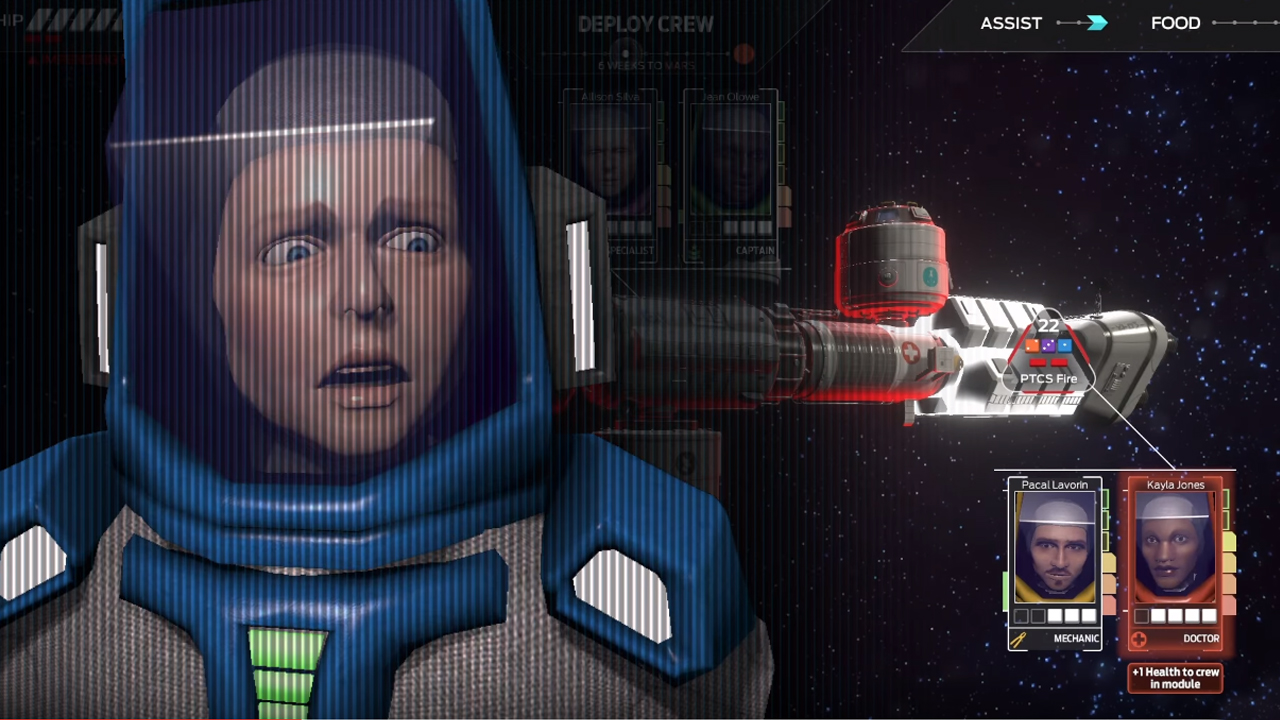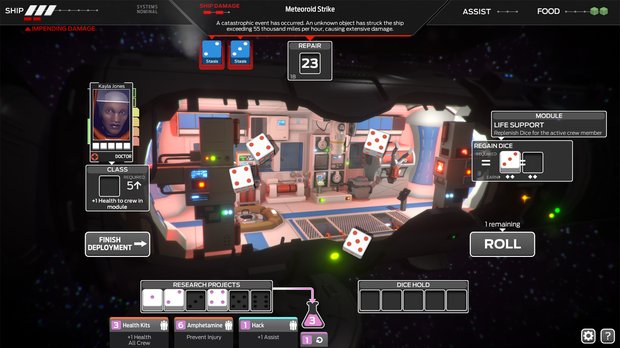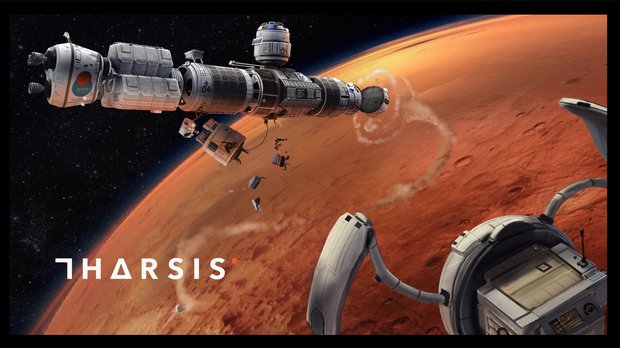Mars, Dice, and Cannibalism: You should be playing Tharsis
It’s always tough deciding whether or not to eat your crewmate. On the one hand, you need the energy if you’re to have any prayer of doing the repairs necessary to get your ship to Mars. On the other hand -- oh, wait, there is no other hand, because you ate it. Too soon? Sorry.

Whether or not to dine on the engineer is just one of the many conundrums you’ll face in Tharsis, which is what you’d get if you mixed Dark Souls and dice rolls with grim sci fi movie Sunshine. Your mission is to answer a signal coming from Mars, but a catastrophe has damaged your ship and killed two of your crew. The rest of the 10-week journey promises to be just as thorny, forcing you to make difficult choices as to what to repair, what to let break, and who to sacrifice. You will fail a lot playing this game. Soooo much failure.
You begin each game of Tharsis with four crew members, each with a special ability. The mechanic can add one point to the ship’s hull integrity, the doctor can add a point to crew’s health, and so on. Each round - which represents one week of the journey to Mars - something bad happens to the ship, such as a coolant leak or getting whacked by meteoroids. Destroy the ship, you fail. Kill the crew, you fail. You’ll move the crew throughout the ship, using their changing allotment of dice to try rolling high enough to fix whatever’s broken. Easy enough when you’ve got six dice at your disposal, trickier if you’re down to a single cube. Mechanically, it’s very simple, but you’ll quickly discover not only that there are many complex layers of strategy to consider, but also that Tharsis does an absolutely terrible job of telling you how to play.

The brief tutorial explains what everything on the screen means, but doesn’t explain important things like how to harvest food or repair the ship from the engine room. It neglects to mention until the last possible moment that anyone not in Flight Control when you reach Mars is getting left behind. Learning strategy through trial and error is to be expected, but learning mechanics that way can be very frustrating, especially when so much is left to chance. Both the events you encounter and the dice rolls you get are random, which inevitably leaves you screwed sometimes. Learning to play Tharsis is a lot like learning to box; you’ll pick it up eventually, but you’re going to get punched in the face a lot before you do.
Once you’ve finally figured out how things work, however, divining a sound Tharsis strategy is undeniably addictive and satisfying. Every round is a weighing of pros and cons, profit and loss. It’s not enough to simply monitor the ship’s hull and the crew’s health; you also must be mindful of the number of dice they can roll, which drops each turn, and their stress levels, which rise when they’re injured or, y’know, chowing down on the pilot. The higher your crew’s stress, the crappier the options you’re given after each round, when you must select one of two suggestions from the crew. If they’re reasonably chill, you’ll get stuff like the choice to add a point to the ship’s hull in exchange for a point of crew health, or preventing bad die rolls on the next round. If they’re freaking out, however, your selection is more about which option sucks the least. You can lower stress by letting them phone home or spending dice to do a research project, but that means you’re not working to repair the ship and...you see where I’m going with this.

The cannibalism seems like a gimmick at first, but it’s just another layer of strategy to be considered. Eating replenishes dice, but there’s little food to be had. There are other ways to regain dice, but they come with the typical trade off of not being able to work on the ship while you take advantage of them. You could take the time to harvest food from hydroponics, for example, but eat a crewmate and you might be able to use your turn to fix the engines.
Tharsis is definitely working against you for several hours, and it lacks certain basic commands (why can’t I just quit a game if I know I can’t possibly survive it?), but once you dig into the strategy and really understand the kind of balance needed to get to Mars, it’s a fantastic experience. The randomization of disasters becomes thrilling rather than frustrating as you eke your way slightly closer to the Red Planet, and your decisions are measured responses to catastrophe, rather than frantic guesses. Good luck, and remember: All that matters is the mission.
Sign up to the GamesRadar+ Newsletter
Weekly digests, tales from the communities you love, and more
Susan was once Managing Editor US at GamesRadar, but has since gone on to become a skilled freelance journalist, editor, producer, and content manager. She is now 1/3 of @Continuepod, 1/2 of @BeastiesLl, co-founder of @TakeThisOrg, and Apex Editor, Fluid Group.



